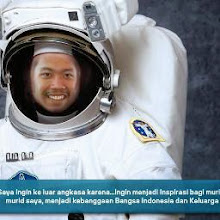Another approach, instrumentalism, colloquially termed "shut up and calculate", emphasizes the utility of theories as instruments for explaining and predicting phenomena.
It claims that scientific theories are black boxes with only their input (initial conditions) and output (predictions) being relevant. Consequences, notions and logical structure of the theories are claimed to be something that should simply be ignored and that scientists shouldn't make a fuss about (see interpretations of quantum mechanics).
Close to instrumentalism is Constructivist epistemology according to which the main task of science is constructing models that can be given input and will give you an output that will predict the output given by the reality under same conditions accurately and validly enough.
Paul K Feyerabend advanced the idea of epistemological anarchism, which holds that there are no useful and exception-free methodological rules governing the progress of science or the growth of knowledge, and that the idea that science can or should operate according to universal and fixed rules is unrealistic, pernicious and detrimental to science itself.
Feyerabend advocates treating science as an ideology alongside others such as religion, magic and mythology, and considers the dominance of science in society authoritarian and unjustified.
He also contended (along with Imre Lakatos) that the demarcation problem of distinguishing science from pseudoscience on objective grounds is not possible and thus fatal to the notion of science running according to fixed, universal rules.
Feyerabend also stated that science does not have evidence for its philosophical precepts, particularly the notion of Uniformity of Law and the Uniformity of Process across time and space.
Finally, another approach often cited in debates of scientific skepticism against controversial movements like "scientific creationism", is methodological naturalism. Its main point is that a difference between natural and supernatural explanations should be made, and that science should be restricted methodologically to natural explanations.
That the restriction is merely methodological (rather than ontological) means that science should not consider supernatural explanations itself, but should not claim them to be wrong either. Instead, supernatural explanations should be left a matter of personal belief outside the scope of science.
Methodological naturalism maintains that proper science requires strict adherence to empirical study and independent verification as a process for properly developing and evaluating explanations for observable phenomena.
The absence of these standards, arguments from authority, biased observational studies and other common fallacies are frequently cited by supporters of methodological naturalism as criteria for the dubious claims they criticize not to be true science.
Sumber:
Wikipedia
























No comments:
Post a Comment